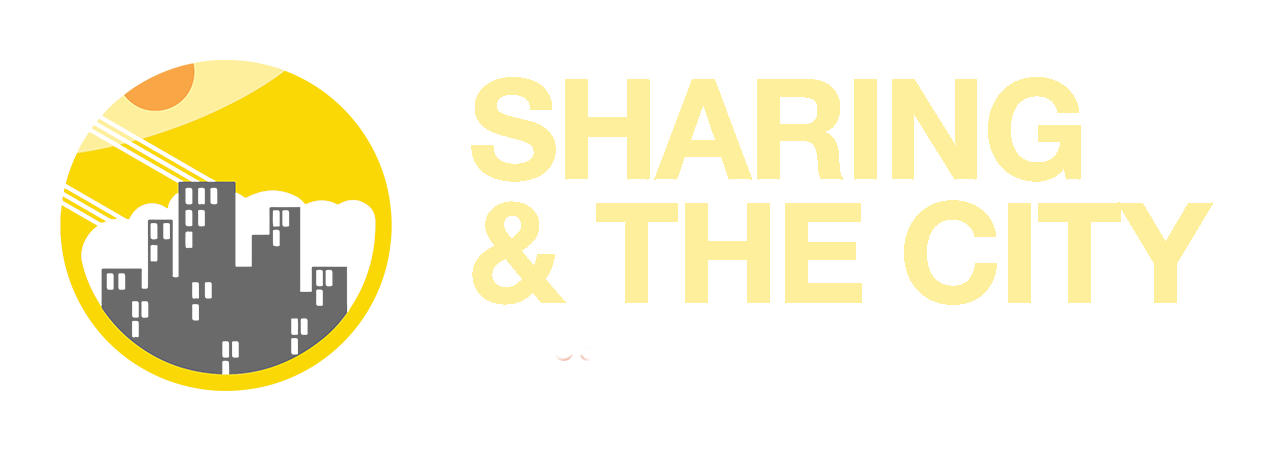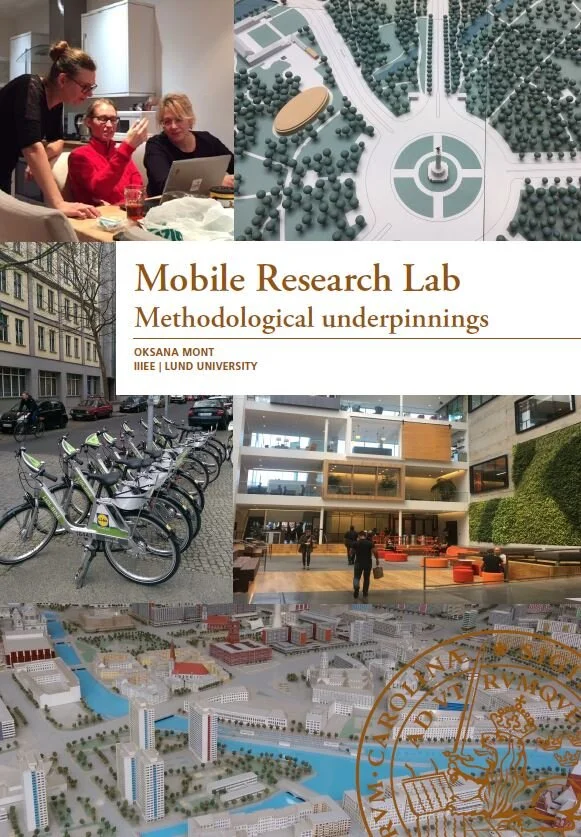REPORT “urban sharing in melbourne”
As part of the Urban Sharing and Sharing and the City projects, researchers Oksana Mont, Yuliya Voytenko Palgan, Andrius Plepys and Ana Maria Arbelaez Velez conducted an online Mobile Research Lab to explore the landscape of the sharing economy in the city context and produced a report “Urban Sharing in Melbourne”. The report focuses on sharing in three sectors: space, mobility, and physical goods. For each sector, drivers and barriers for the sharing economy are explored, associated sustainability impacts and impacts on incumbent sectors are discussed, and the institutional context is analysed. The researchers have also investigated the effects of the COVID-19 pandemic on sharing economy organisations and their response strategies. The role of selected municipal governments in Melbourne in engaging with the sharing economy and specific governance mechanisms employed by them are discussed.
The report concludes that the sharing economy in Melbourne is among the most vibrant and diverse in Australia. Most people typically are aware of the larger sharing platforms, such as Uber and Airbnb, and sometimes local car-sharing initiatives like GoGet or CarNextDoor. However, many smaller initiatives remain virtually unknown and struggle to scale up. The sharing economy has also a small place in public governance agendas regarding sustainable development. It has the potential to contribute to multiple city agendas, including but not limited to the circular economy and climate change. The report “Urban Sharing in Melbourne” is number four in the series of reports produced by Urban Sharing researchers. Earlier reports analysed the sharing economy in Amsterdam, Toronto and Shanghai.
REPORT “THE FUTURE OF SHARING”
Sharing and the City researcher Yuliya Voytenko Palgan contributed to a report “The Future of Sharing: A Roundtable for Horizon Scanning on Sharing Cities”, which was produced by Sharing Cities Sweden and Sharing Cities Alliance after the “Sharing Cities - Shaping Tomorrow” roundtable. Specifically Yuliya commented on the future of sharing in cities and communities as a result of the COVID-19 pandemic, and in which ways our cities can “build back better” using the sharing economy.
GOTHENBURG MOBILE LAB REPORT
Sharing and the City researcher Yuliya Voytenko Palgan organised a mobile research lab in Gothenburg on 16 October 2018. The purpose of the mobile research lab was to explore sharing services, politics and the development of the sharing economy in Gothenburg. Mobile research labs bring together a group of researchers and investigators who conduct interviews and site visits together following a structured process. During the mobile lab in Gothenburg, the team visited the Consumer and Citizen Service Administration at the City of Gothenburg and the City Hall, and went on a guided tour in the newly developed area, Södra Älvstranden. The team interviewed a founder of a bicycle repair workshop, the Bike Kitchen (Cykelköket), a civil servant and a leader of the Circular Gothenburg (Cirkulära Göteborg) project, a deputy-mayor of Gothenburg, and a founder of the platform for sharing of urban land for gardening (Grow Gothenburg). After the mobile lab, all participants documented and shared their reflections of the day, which formed the basis for this report.
Malmö Mobile Lab report
Sharing and the City researcher Yuliya Voytenko Palgan organised a mobile research lab in Malmö on 7 March 2018. The purpose of the mobile research lab was to explore sharing services and the development of the sharing economy in Malmö. Mobile research labs bring together a group of researchers and investigators who conduct interviews and site visits together following a structured process. The mobile research lab in Malmö involved a clothes sharing and swapping store Swopshop, the City of Malmö electric bike sharing initiatives, an organisation supporting start-ups Drivhuset, and a library for sharing books, space and things Garaget. Read a report from the mobile research lab.
Amsterdam City Report
Sharing and the City researcher Yuliya Voytenko Palgan together with Urban Sharing research team co-organised a mobile research lab in Amsterdam in Spring 2019. Over the course of months, seven researchers contributed to the Mobile Research Lab in Amsterdam, which involved 25 interviews, analysis of academic and grey literature, and field work in Amsterdam. The actors interviewed comprised experts from different departments of the City of Amsterdam, representatives of urban sharing organisations from different sectors (space, mobility and physical goods sharing), third-party organisations, users of sharing organisations, and researchers. Read the Amsterdam City report.
Sharing Cities Synthesis Report
In April 2019, Sharing Cities Sweden published a synthesis report entitled Sharing Cities: Exploring the Emerging Landscape of the Sharing Economy in Cities. It captures the lessons learned and ambitious goals of the test-beds in Stockholm, Malmö, Umeå and Göteborg. The document contains articles on the journeys of the test-beds, a discussion of designing test-beds as urban living labs, insights into governing sharing cities, and an overview of strategic thinking on sharing cities. Sharing and the City researcher Yuliya Voytenko Palgan contributed with expert note on the municipal governance of sharing.”
Mobile Research Lab Methodological Report
Sharing and the City project employs innovative method for empirical data collection called “Mobile Research Lab”. Methodological underpinnings were developed together with colleagues from Urban Sharing programme, and are presented in this report. The method of “mobile research lab” builds on the idea and term coined by Harriet Bulkeley (Durham University) and Johannes Stripple (Lund University) to represent a type of research activity when an interdisciplinary group of researchers visits various sites to study a certain phenomenon in a city. According to Bulkeley, the method is based on a concept of infra-labs (infrastructure labs) put forward by Simon Marvin (Sheffield University) and colleagues in 2000s (Bulkeley 2016). Infra-labs implied a process of collectively researching infrastructure related controversies in urban contexts. Unlike the original idea of a mobile lab that studies “a specific sustainability controversy, intervention, or experiment”, Mobile Research Lab investigates a more complex and broader societal phenomenon manifested in activities of a variety of organisations and societal actors.







